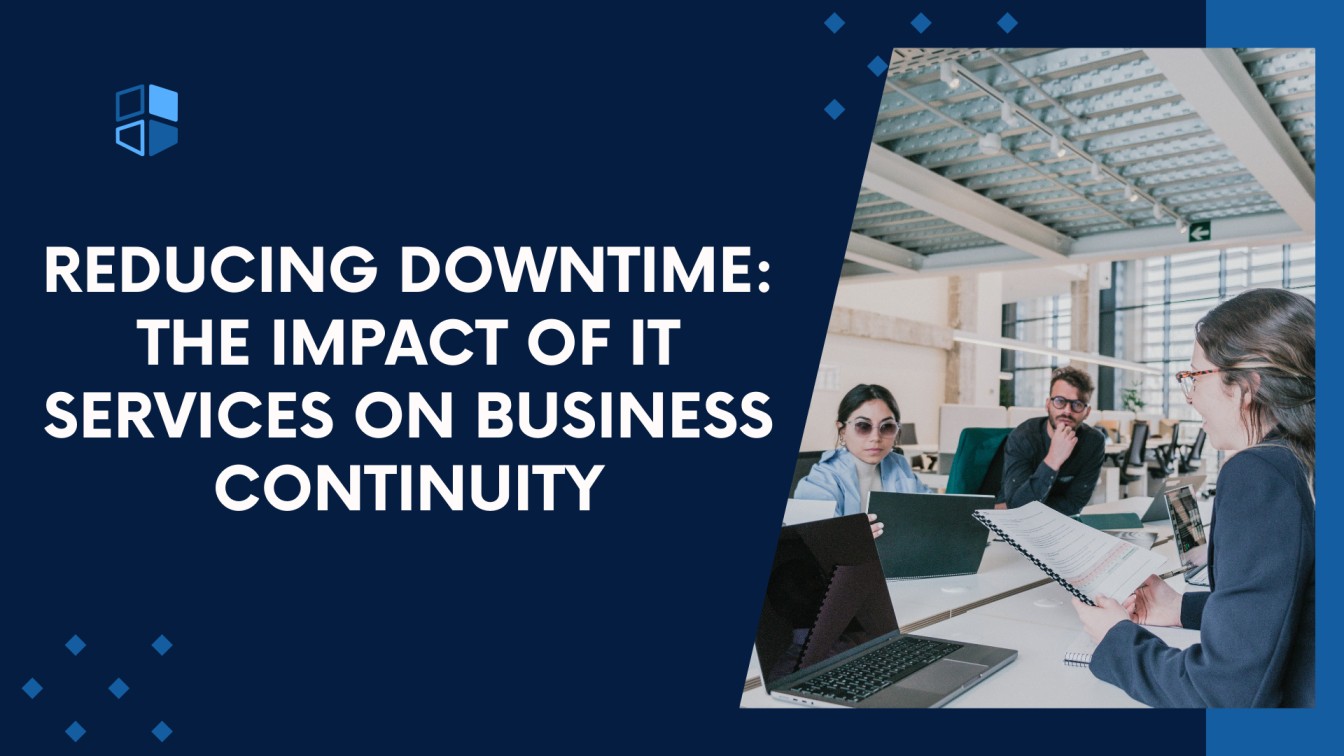Introduction
Downtime is a critical concern for businesses of all sizes. It refers to periods when systems are unavailable or not functioning optimally, leading to disruptions in operations. These disruptions can result in significant financial losses, damage to reputation, and decreased customer satisfaction. To mitigate these risks, many companies invest in IT services aimed at ensuring business continuity. This article explores how IT services can reduce downtime and support uninterrupted business operations.
Note: Click to know about Best IT Company in Ranchi
Understanding Downtime and Its Consequences
Financial Losses
Downtime can have a direct impact on a company’s bottom line. Revenue loss, overtime costs for IT staff, and potential penalties for failing to meet service level agreements (SLAs) are common financial consequences.
Reputational Damage
Frequent or prolonged downtime can erode customer trust and damage a company’s reputation. In today’s digital age, customers expect constant availability, and any interruption can lead to negative reviews and a loss of business.
Operational Disruption
Downtime disrupts business operations, affecting productivity and efficiency. Employees may be unable to access necessary systems or data, leading to delays and a backlog of work.
The Role of IT Services in Reducing Downtime
Proactive Monitoring and Maintenance
IT services provide proactive monitoring and maintenance of systems to detect potential issues before they lead to downtime. Regular updates, patches, and preventive maintenance ensure systems are running smoothly and vulnerabilities are addressed promptly.
Rapid Incident Response
In the event of a system failure, IT services offer rapid incident response to minimize downtime. Skilled IT professionals can quickly diagnose and resolve issues, ensuring systems are restored as swiftly as possible.
Disaster Recovery Planning
IT services include disaster recovery planning to prepare for worst-case scenarios. A comprehensive disaster recovery plan outlines the steps to be taken in the event of a major disruption, ensuring that critical systems and data can be recovered quickly.
Key IT Services for Business Continuity
Cloud Services
Cloud services offer scalability, flexibility, and reliability. By hosting systems and data in the cloud, businesses can ensure they remain accessible even in the event of local hardware failures or other disruptions.
Managed IT Services
Managed IT services provide ongoing management and support of IT infrastructure. This includes everything from network management to cybersecurity, ensuring that systems are always protected and functioning optimally.
Backup and Recovery Solutions
Regular backups are essential for protecting data. IT services provide automated backup solutions and robust recovery processes, ensuring that data can be restored quickly in the event of loss or corruption.
Note: Click to know about App Development Company in Ranchi
Conclusion
Reducing downtime is crucial for maintaining business continuity and safeguarding a company’s reputation and financial health. IT services play a vital role in achieving this by providing proactive monitoring, rapid incident response, disaster recovery planning, and more. Investing in these services can help businesses minimize the impact of downtime and ensure uninterrupted operations.
Future Trends in IT Services for Business Continuity
Artificial Intelligence and Machine Learning
AI and ML are being integrated into IT services to predict and prevent downtime. These technologies can analyze patterns and detect anomalies, allowing for even more proactive maintenance and issue resolution.
Edge Computing
Edge computing reduces latency and increases the speed of data processing by bringing computation closer to the data source. This can improve system reliability and reduce downtime for businesses relying on real-time data processing.
Enhanced Cybersecurity Measures
As cyber threats continue to evolve, IT services are focusing on advanced cybersecurity measures. Improved threat detection and response capabilities help protect systems from attacks that could cause significant downtime.













